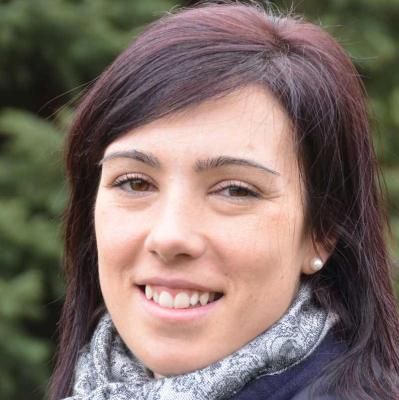Dr. Lewis has travelled across the Atlantic to her new hometown of Kelowna, B.C. after completing an Honours BSc, a MSc, and a PhD at Liverpool John Moores University in the United Kingdom, where her PhD work focused on Diurnal Variation in Orthostatic Tolerance and the Cerebrovascular Mechanisms Underlying Syncope. Her UBC Postdoctoral work is being conducted on the UBC Okanagan campus under the auspices of Professor Phil Ainslie, Centre of Heart, Lung and Vascular Health, School of Health and Exercise Science, Faculty of Health and Social Development.

Research topic
Research Description
Mechanism of cerebral blood flow regulation governing orthostatic tolerance and syncope onset.
Hypoxia and the regulation of cerebral blood flow and vascular function and structure.
Cerebral blood flow regulation and chronic obstructive lung disease: effect of exercise.
My specific research focus is directed to the understanding of the integrated mechanisms which regulate human brain blood flow in health and disease. Specifically my research has focused thus far on conditions and diseases associated with a lack of oxygen being delivered to the brain and reduction in brain blood flow. In healthy individuals, I have used environmental stressors such as hypoxia (reduced blood oxygen levels created by going to high altitude or reducing oxygen levels in a hypoxic chamber) and orthostatic stress (conditions that stimulate fainting, where blood flow to the brain is reduced, which ultimately reduces oxygen being delivered to the brain) to exposure the effect of low oxygen levels on brain blood flow, specifically how the larger extra-cranial blood vessels (common carotid arteries, internal carotid arteries, vertebral arteries) and intra-cranial blood vessels (middle cerebral arteries and posterior cerebral arteries) regulate their diameter and blood flow velocity to ensure oxygen delivery is maintained despite the inflicted challenges. In individuals with chronic obstructive pulmonary disease, who chronically have a reduced blood oxygen levels due to the nature of this respiratory disease, I have investigate how brain blood flow is regulated in these individuals compared to a healthy control population, specifically how the larger extra-cranial blood vessels (common carotid arteries, internal carotid arteries, vertebral arteries) and intra-cranial blood vessels (middle cerebral arteries and posterior cerebral arteries) regulate their diameter and blood flow velocity, at rest, and in response to blood pressure changes and changes in oxygen and carbon dioxide blood levels. In addition I have investigated the effect of an 8-week exercise intervention on brain blood flow regulation in patients with chronic obstructive pulmonary disease and healthy controls, to see if blood flow regulation is altered during this exercise intervention.
Why did you decide to pursue a postdoctoral fellowship at UBC? Did you consider other opportunities?
The main reason I pursued postgraduate work at UBC is because this is the institution where Professor Ainslie is located. Professor Ainslie’s research program is aimed at exploring the integrated mechanisms which regulate human cerebral blood flow in health and disease. Because of the fundamental issue of a compromise in cerebral blood flow regulation; one of his main areas of interest is syncope, therefore his research program and interests were similar to mine, and suitable for progression on from my PhD program. Professor Ainslie’s is also a Canada Research Chair in Cerebrovascular Physiology, and has obtained some of the most sought after funding awards in Canada. As a result, the facilities available to carry out research with his laboratory are state-of-art making his laboratory one of the world’s leading research laboratories in cerebrovascular regulation.
What advice do you have for new postdoctoral fellows?
To work hard but also play hard. It is important to get your research program developed and in motion, but at the same time British Columbia is a beautiful place to be, so make the most of seeing what it has to offer.
What does receiving this award mean for your career?
It has meant a lot to me, it is a sign that all my hard work and my research success during my time at UBCO, has been recognized and valued. It is something that will help in the future in terms of securing a more permanent research position, and something I very much appreciated!
What do you hope to accomplish with your current work?
The overall aim of my research program is to understand and identify mechanisms that regulate brain blood flow in response to low blood oxygen levels and reduced brain blood flow, and relate this information to disease and illness. Overall, I hope the product of my research will hopefully help people with diseases or individuals with disease-risk associated with low oxygen levels and reduced brain blood flow (e.g. chronic obstructive pulmonary disease, vascular dementia, Alzheimer’s, individuals prone to fainting, orthostatic hypotension, postural orthostatic tachycardia syndrome, people at risk of stoke), by providing physicians information on the mechanisms that regulate brain blood flow, and inform them on whether exercise can be used as treatment in individuals with chronic obstructive pulmonary disease.
What research related or academic event coming up in the near future are you most excited about?
In July the Centre of Heart, Lung and Vascular Health are hosting an ultrasound summer school on vascular, cardiac and cerebral ultrasound techniques that can be used in research purposes to assess; brain blood flow, vascular and cardiac function. The aim of this ultrasound summer school is to provide individuals with ultrasound research skills that they can implement into their research and help develop an appropriate standard across Canada.
For you, what was the best surprise about UBC or life in Vancouver?
I was amazed by how successful the School of Health and Exercise has been in terms of securing research funding and at the departments research output, despite being a relevantly new, small, (but fast growing) department.
I was taken totally by surprise by Kelowna’s seasons, in that it is not in fact cold all year round, as most non-Canadians believe, but instead can be very hot and dry in the summer months.